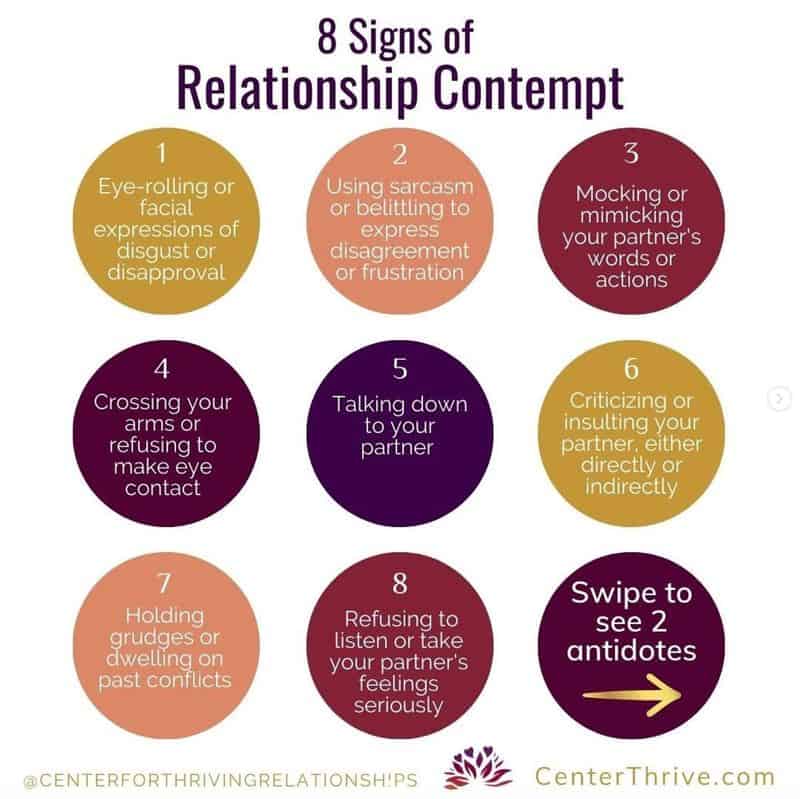Ever wonder why some relationships that start with sparks and butterflies end up in bitterness and resentment? Love can sometimes transform into its opposite when certain patterns take hold.
Many couples who once couldn’t get enough of each other eventually find themselves walking on eggshells or avoiding each other completely.
Understanding these relationship pitfalls might help you avoid the same fate in your own partnerships.
1. Communication Breakdown
When partners stop truly listening to each other, a dangerous gap forms. Words become weapons rather than tools for understanding, and conversations transform into competitions where nobody wins.
Many couples fall into habits of interrupting, dismissing concerns, or retreating into silence. These patterns create emotional distance that grows wider with each failed attempt to connect. What begins as minor misunderstandings eventually evolves into complete disconnection.
Partners begin assuming the worst about each other’s intentions, and the relationship becomes a battlefield rather than a sanctuary. Without healthy communication channels, even small issues become insurmountable problems.
2. Endless Criticism
Nothing erodes love faster than constant fault-finding. When one partner becomes a perpetual critic, the relationship transforms into an endless performance review where the other person can never measure up.
The criticized partner starts walking on eggshells, afraid that anything they say or do will trigger another negative comment. Their self-esteem crumbles under the weight of disapproval, while resentment builds silently.
Eventually, the criticized person either fights back with their own criticisms or emotionally checks out of the relationship. A toxic cycle begins where both partners see only the worst in each other.
What once was admiration and appreciation becomes contempt – one of the most destructive forces in any relationship.
3. Financial Friction
Money matters can transform lovebirds into adversaries faster than almost anything else. Different spending habits, secret purchases, or conflicting financial goals create explosive arguments that leave lasting damage.
One partner might prioritize saving while the other believes in living for today. The saver feels anxious and disrespected when money disappears, while the spender feels controlled and judged for every purchase.
Financial stress amplifies these differences, especially when debt accumulates or income changes unexpectedly. Partners may blame each other for money troubles rather than working together to solve them.
Without financial transparency and teamwork, couples can develop deep-seated anger that poisons their entire relationship.
4. Betrayal of Trust
Trust shatters in an instant but takes years to rebuild – if it can be restored at all. Whether through infidelity, lying about important matters, or breaking promises repeatedly, betrayal cuts deeply into the foundation of a relationship.
The betrayed partner experiences a rollercoaster of emotions: shock, anger, grief, and often obsessive thoughts about what happened.
Meanwhile, the partner who broke trust may become defensive or impatient with the healing process, creating even more damage. Without proper resolution, the relationship becomes haunted by suspicion.
Every late night at work or unexplained absence triggers anxiety. The betrayed partner may seek revenge or use the past mistake as ammunition in future arguments, creating a toxic environment where hatred can flourish.
5. Disrespect and Contempt
Eye-rolling, mockery, sarcasm, and name-calling might seem minor in the moment, but these behaviors are relationship poison. When respect disappears, partners start viewing each other as enemies rather than teammates.
Contempt often begins subtly – a dismissive tone here, a condescending comment there. Partners stop giving each other the benefit of the doubt and instead assume the worst intentions.
Public humiliation is particularly damaging, as it signals to everyone that the relationship has become a battleground. Research shows contempt is the single greatest predictor of divorce. It creates an atmosphere where both people feel constantly attacked and devalued.
No one can remain emotionally connected to someone who treats them with disgust or disdain – hatred becomes a natural response to ongoing disrespect.
6. Unbalanced Responsibility
Resentment festers when one partner feels like they’re carrying the relationship alone. Whether it’s household chores, childcare, financial support, or emotional labor, uneven distribution of responsibilities breeds bitterness.
The overworked partner feels taken for granted and invisible, while their efforts go unacknowledged. Meanwhile, the other person may not even realize there’s a problem, making the imbalance feel even more unfair.
Over time, the burdened partner’s patience wears thin. Small irritations grow into major grievances. “Why should I have to do everything?” becomes a constant internal monologue.
Without intervention, this imbalance transforms partners from lovers into adversaries, with one feeling exploited and the other feeling constantly criticized.
7. Growing Apart
People change – it’s inevitable. When partners evolve in different directions without making efforts to reconnect, they can become strangers sharing a home. New interests, career changes, spiritual awakenings, or personal growth can create distance if not shared or at least respected.
Couples who once finished each other’s sentences find they have nothing meaningful to discuss. The emotional and intellectual connection that once felt so natural requires more and more effort.
Without intentional efforts to grow together, partners may seek fulfillment elsewhere – not necessarily through affairs, but through friendships and activities that exclude their partner.
They begin building separate lives under the same roof. The indifference that results can be more painful than active conflict, leading to profound loneliness and eventual hatred.
8. Control and Domination
Freedom is essential in healthy relationships. When one partner attempts to control the other’s friends, appearance, or decisions, love suffocates under the weight of domination. Controlling behavior often masquerades as care or protection.
“I’m just looking out for you” becomes the excuse for monitoring, restricting, and manipulating. The controlled partner gradually loses their sense of self, walking on eggshells to avoid conflict. As control tightens, rebellion becomes inevitable.
The dominated partner either explodes in resistance or plots their escape. What began as a loving relationship transforms into a power struggle where hatred replaces affection. Even after relationships end, the controlling partner may refuse to let go, creating a nightmare of harassment or stalking.
9. Addiction and Destructive Habits
When substances or behaviors take priority over the relationship, partners become collateral damage. Addiction doesn’t just harm the individual – it transforms their personality and priorities, leaving loved ones feeling abandoned.
The non-addicted partner cycles through enabling, anger, and despair as promises are repeatedly broken. They may become hypervigilant, constantly looking for signs of relapse or deception. Trust erodes with each disappointment.
Family resources – emotional, financial, and temporal – get diverted to managing the addiction’s fallout. Children often get caught in the crossfire, forcing the sober partner to be both protector and provider.
After years of chaos and broken trust, the relationship becomes defined by the addiction rather than love, creating perfect conditions for hatred to develop.
10. Unresolved Conflicts
Some couples fight about the same issues for decades without resolution. When conflicts get swept under the rug, they don’t disappear – they grow larger and more toxic with time. Avoidance becomes the go-to strategy, with partners dancing around sensitive topics to prevent explosions.
The relationship becomes a minefield where certain subjects trigger immediate tension. Each unresolved argument adds another brick to the wall between partners. The issues themselves often matter less than the pattern of avoidance.
Partners feel permanently misunderstood, with their needs consistently dismissed. Without healthy conflict resolution skills, even minor disagreements can reignite all past grievances.
This perpetual stalemate creates an atmosphere where partners feel trapped in an endless loop of frustration, eventually leading to mutual hatred.











